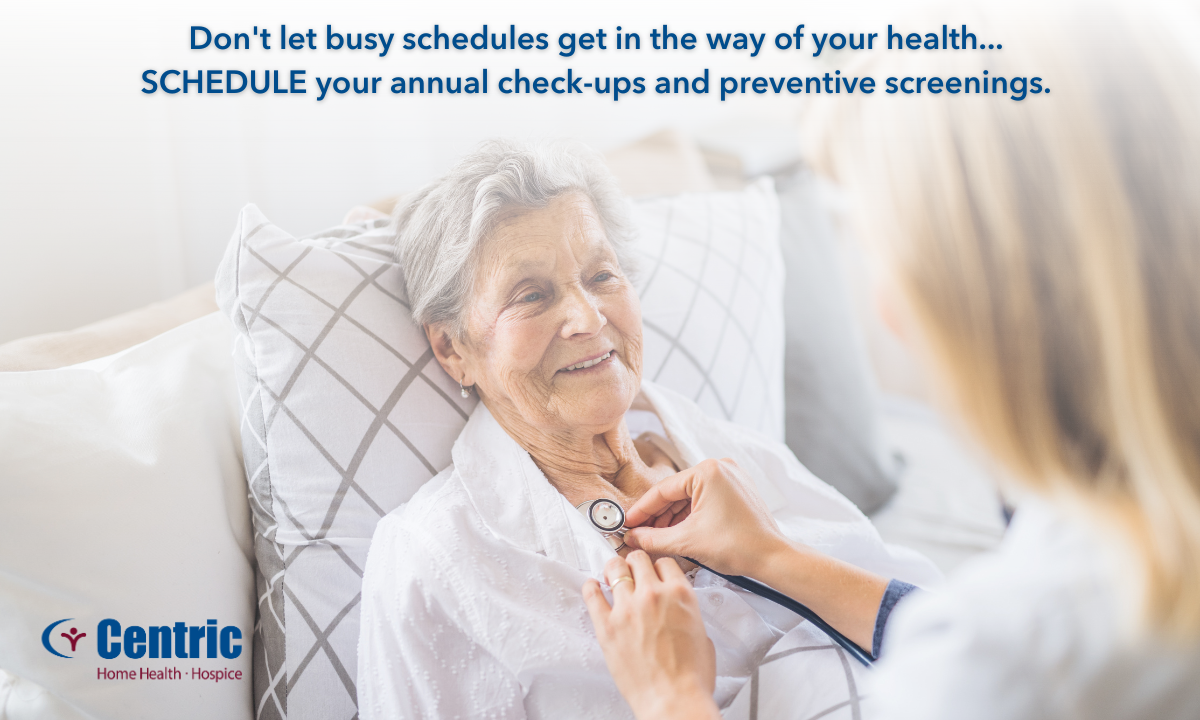Essential Women's Health Topics in 2025
Taking Charge of Your Health: Essential Women's Health Topics to Discuss with Your Doctor
Let's be honest, juggling work, family, and life can feel like a constant whirlwind. As women, we often put everyone else's needs first. But what about our own health? It's time to prioritize yourself and your health!
This year, let's make a commitment to our health. Start by having open and honest conversations with your doctor. This isn't just about your annual check-up; it's about diving deeper into the unique health concerns that affect women throughout their lives.

Beyond the Annual Check-up
Let’s be real, those annual check-ups often feel rushed. We might get a quick blood pressure check and a “How are you feeling?” but rarely do we have time to discuss the things that truly matter. This year, let's change that.
Mental Health
Let's prioritize our mental well-being. Anxiety and depression are common among women. Don't hesitate to discuss any mental health concerns with your doctor. They can help you understand your symptoms, explore tools, hotlines, and resources, and discuss available treatment options, such as therapy (cognitive-behavioral therapy, psychotherapy), medication (antidepressants, anti-anxiety medications), and lifestyle changes (stress management techniques, regular exercise).
Stress management is crucial for overall well-being. Explore stress management techniques such as mindfulness, yoga, deep breathing exercises, and meditation. Discuss strategies for improving sleep quality, such as establishing a regular sleep schedule, creating a relaxing bedtime routine, and optimizing your sleep environment.
Sexual Health
Let's break the taboo! Openly discuss any sexual health concerns with your doctor. This includes STIs – regular screenings are crucial. Discuss your risk factors and inquire about recommended screening tests, including chlamydia, gonorrhea, human papillomavirus (HPV), and HIV. Regular testing is crucial for early detection and treatment, which can prevent complications and long-term health issues.
Don't shy away from discussing sexual dysfunction. It's more common than you might think, and it can have physical, psychological, or hormonal causes. Open communication with your doctor can help you determine the underlying factors and explore appropriate treatment options, such as therapy, medication, or lifestyle changes.
Discuss the importance of pelvic floor health and learn about potential issues such as incontinence (urinary or fecal), prolapse (pelvic organs dropping), and pelvic pain. Physical therapy, lifestyle modifications (such as Kegel exercises), and in some cases, surgery can help manage these conditions.
Chronic Disease Prevention
Let's be proactive about our long-term health. Discuss your risk factors for heartdisease, such as high blood pressure, high cholesterol, diabetes, smoking, and family history. Learn about lifestyle modifications that can significantly reduce your risk, such as a healthy diet (rich in fruits, vegetables, and whole grains), regular exercise, and maintaining a healthy weight.
Discuss your risk factors for osteoporosis, including age, family history, and medical conditions. Learn about the importance of calcium and vitamin D intake, weight-bearing exercise, and medications to prevent bone loss.
Understand the recommended screening guidelines for breast cancer (mammograms), cervical cancer (Pap smears and HPV testing), and other cancers relevant to your age and risk factors.
Reproductive Health
Let's talk periods! Are they regular? Heavy? Painful? These aren't just "women's things" - they're important indicators of your overall health. Discuss any irregularities with your doctor. These could be signs of underlying conditions like endometriosis, fibroids, or hormonal imbalances.
Understanding your menstrual cycle is crucial. Tracking your periods can help you identify any irregularities and discuss them with your doctor. Explore various birth control options, from the pill to IUDs, and discuss the pros and cons of each with your doctor. Consider your lifestyle, health history, and future family planning goals when making a decision.
If you are planning to conceive, discuss prenatal vitamins, genetic testing options, and any necessary lifestyle modifications. If you are experiencing difficulty conceiving, explore fertility treatments such as ovulation induction, intrauterine insemination (IUI), or in vitro fertilization (IVF). Discuss the success rates, potential risks, and costs associated with these treatments with your doctor.
Understand the common symptoms of menopause, such as hot flashes, night sweats, mood changes, and vaginal dryness. Discuss hormone replacement therapy (HRT) options, their potential risks and benefits, and alternative approaches to managing menopausal symptoms, such as lifestyle modifications (diet, exercise), complementary therapies (like yoga and meditation), and over-the-counter remedies.

Lifestyle Factors
Let's make healthy choices a priority! Discuss your dietary needs and how to incorporate healthy eating habits into your daily routine.
Learn about the recommended amount of physical activity for your age and health status. Aim for at least 150 minutes of moderate-intensity aerobic activity or 75 minutes of vigorous-intensity aerobic activity per week, along with strength training exercises two or more days per week.
Discuss your alcohol consumption and any concerns you may have about substance use, including smoking.
Beyond the Questions
Remember, your doctor is your partner in health. Don't be afraid to ask questions, even if they seem silly. If you don't understand something, ask for clarification. Use clear and concise language to ensure you fully comprehend the information.
Share any worries or concerns you have about your health, even if they seem minor. Your doctor is there to listen and address your concerns.
Don't be afraid to seek second opinions or explore alternative treatment options. Be an active participant in your healthcare decisions.
Let's make this year the year we prioritize our own health. Let's empower ourselves by having open and honest conversations with our doctors. Let's take charge!

Centric Home Health and Hospice Provides Care 24/7
Centric Home Health and Hospice is dedicated to providing compassionate and comprehensive care to homebound patients in Oklahoma and North Texas during the week, on weekends, and during the holidays. We understand the unique challenges faced by homebound individuals and are committed to supporting your well-being. If you have any concerns regarding your health or require assistance with managing your medications or healthcare needs, please don't hesitate to contact our team or your medical provider.
If you are looking for comprehensive and compassionate home health care and hospice services, contact Centric Home Health and Hospice to learn more about how we can support your health journey. Centric Home Health and Hospice is here (call us at 855.942.3687) for you and your loved ones. Our team of dedicated professionals can provide assistance with various needs, from medication management to skilled nursing care and much more. Contact us today to learn more about our services and how we can help you on your unique health journey.
Disclaimer: This blog post is for informational purposes only and should not be considered medical advice. Always consult with your primary medical provider for any health concerns you may have.
Share This On Your Favorite App
